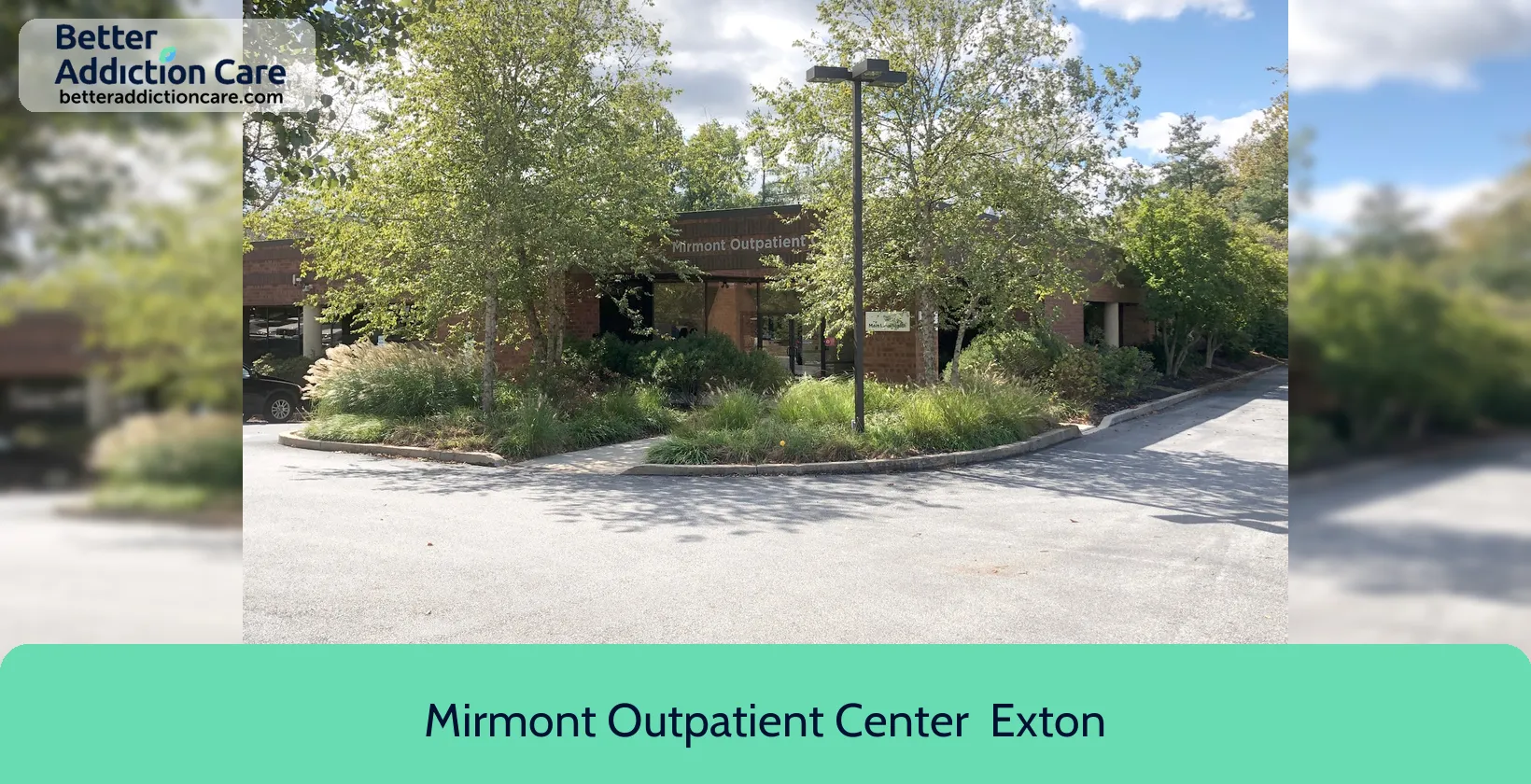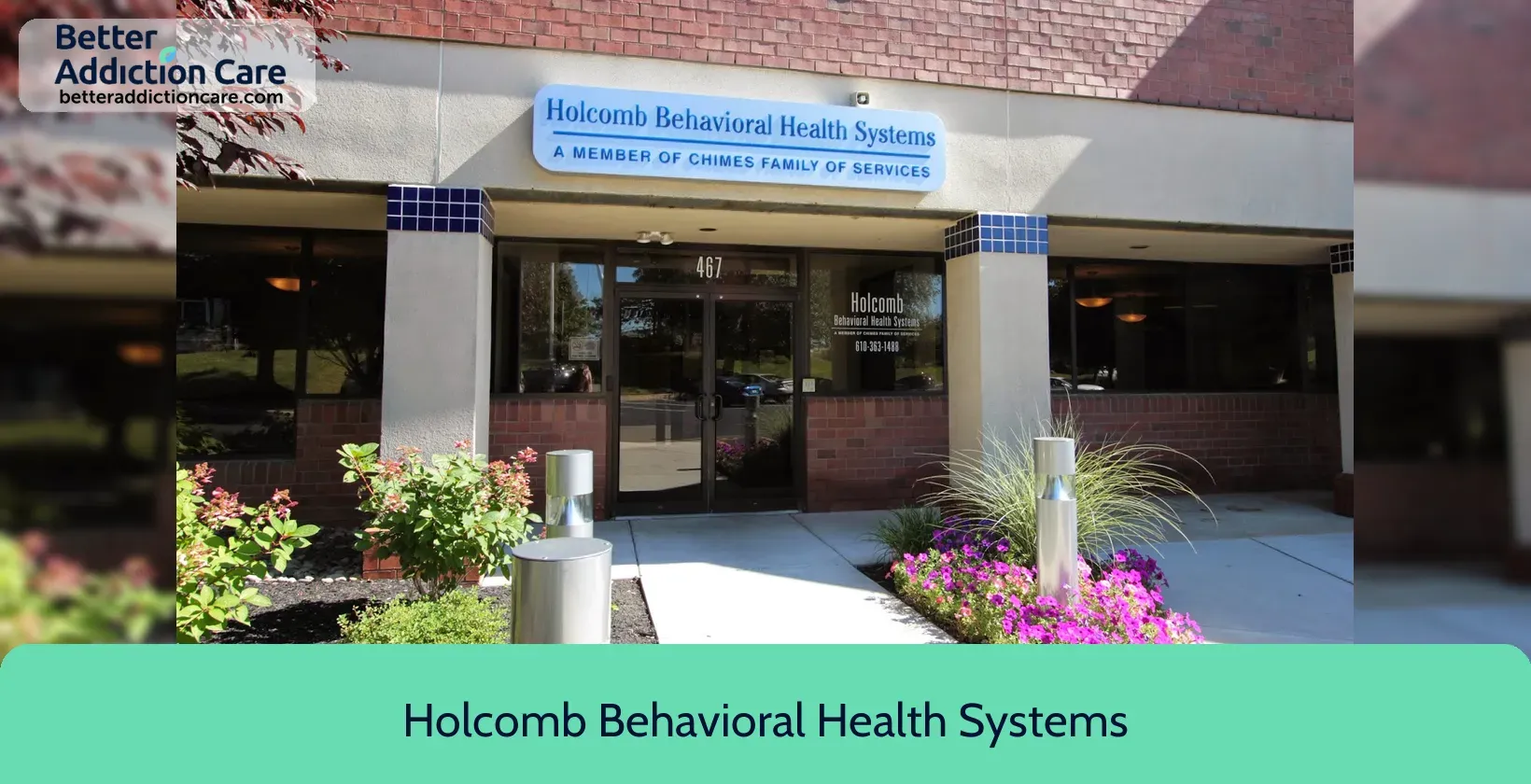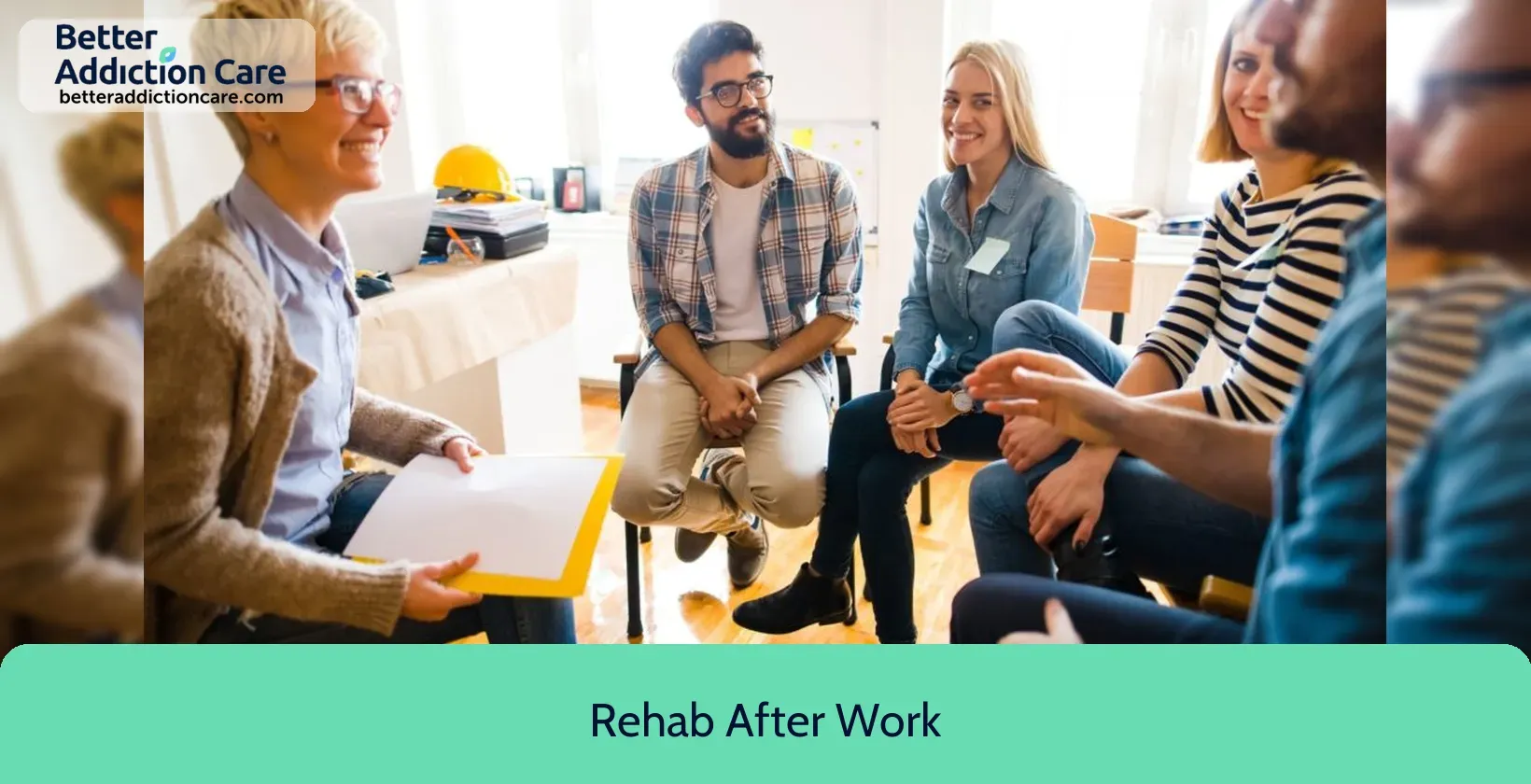Rehab After Work
Overview
Rehab After Work is a substance abuse treatment center for people seeking treatment near Chester County. As part of their treatment modalities for recovery, Rehab After Work provides cognitive behavioral therapy, telemedicine/telehealth therapy, and substance use disorder counseling during treatment. Rehab After Work is located in Exton, Pennsylvania, accepting cash or self-payment for treatment.
Rehab After Work at a Glance
Payment Options
- Cash or self-payment
- Private health insurance
- Per session
Assessments
- Screening for tobacco use
- Comprehensive mental health assessment
- Comprehensive substance use assessment
- Outreach to persons in the community
- Screening for mental disorders
Age Groups
- Young adults
- Adults
Ancillary Services
- Suicide prevention services
- Specially designed program for DUI/DWI clients
- Mental health services
Highlights About Rehab After Work
6.86/10
With an overall rating of 6.86/10, this facility has following balanced range of services. Alcohol Rehabilitation: 8.00/10, Drug Rehab and Detox: 6.00/10, Insurance and Payments: 6.00/10, Treatment Options: 7.46/10.-
Alcohol Rehabilitation 8.00
-
Treatment Options 7.46
-
Drug Rehab and Detox 6.00
-
Insurance and Payments 6.00
Accreditations
State department of health:

Government agencies issue State Licenses, granting rehabilitation organizations permission to operate their businesses legally within specific geographic regions. The licenses needed for legal operation are typically determined by the type of rehabilitation program offered by a facility and its physical location.
Commission on Accreditation of Rehabilitation Facilities (CARF):

CARF accreditation is a globally recognized certification for rehabilitation and human service organizations. It signifies that an organization meets high-quality standards and is committed to providing top-level care. Achieving CARF accreditation involves a rigorous evaluation process, including on-site surveys. This accreditation enhances an organization's reputation, instills trust in clients and funders, and encourages ongoing excellence in the field.
Treatment At Rehab After Work
Treatment Conditions
- Alcoholism
- Mental health treatment
- Substance use treatment
- Co-occurring Disorders
Care Levels
- Outpatient
- Intensive outpatient treatment
- Regular outpatient treatment
- Aftercare
Treatment Modalities
- Cognitive behavioral therapy
- Telemedicine/telehealth therapy
- Substance use disorder counseling
- Trauma-related counseling
- Group counseling
Ancillary Services
Additional Services
- Pharmacotherapies administered during treatment
- Discharge Planning
- Breathalyzer or blood alcohol testing
Special Programs
- Clients with co-occurring mental and substance use disorders
- Criminal justice (other than DUI/DWI)/Forensic clients
- Clients who have experienced trauma
- Clients who have experienced sexual abuse
- Clients who have experienced intimate partner violence, domestic violence
Get Help Now
Common Questions About Rehab After Work
Contact Information
Other Facilities in Exton

7.52

6.68
DISCLAIMER: The facility name, logo and brand are the property and registered trademarks of Holcomb Behavioral Health Systems, and are being used for identification and informational purposes only. Use of these names, logos and brands shall not imply endorsement. BetterAddictionCare.com is not affiliated with or sponsored by Holcomb Behavioral Health Systems.

